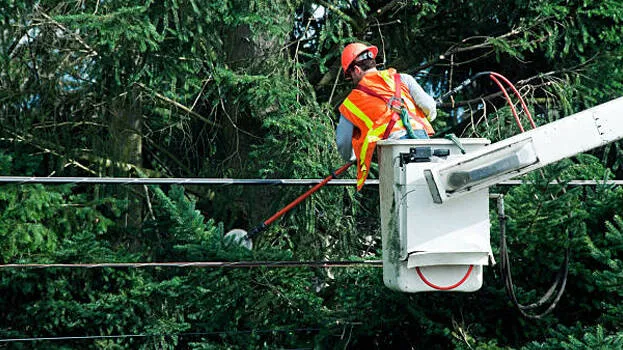

The incident of two more people losing their lives in Kerala due to electrocution from fallen electric wires has led to a huge protest against the KSEB. Before the shock of the death of Mithun, the eighth-grade student at Thevalakkara Boys' School, had worn off, two more people met with a tragic end due to a similar reason. Although the KSEB and local bodies had taken some preventive measures to remove tree branches and other obstacles in anticipation of such accidents during the rainy season, the continuous incidents prove that none of them were completely effective.
It is the friction of swaying tree branches that causes the wires to break during the rainy season. There is currently no other way to avoid this except by cutting down the tree branches that are dangerously close to the power lines. It is not justifiable to say that the tree branches or the trees themselves that protrude into the road could not be cut down because the owner's consent was not obtained. If the Electricity Minister's justification that the Nedumangad accident was caused by the owner's refusal to cut down the tree and branches is accepted, then the other owners also will not agree to cut down such trees and branches. The government does not need to seek their permission in this matter. It makes no sense to say that the owner should agree to cut down the tree branches when the government has the power to voluntarily take over the people's property for public purposes.
The youth who was returning home with his friends after working as a caterer near Nedumangad and a housewife in Koyilandy were the ones who died of electrocution the other day. Two friends of 19-year-old Akshay Suresh, who died in Nedumangad, narrowly escaped the accident. They were both electrocuted while trying to save Akshay. A dry branch of a rubber tree on private property on the roadside had broken off, causing electric wires and a concrete post to fall on the road. This was not noticed in the midnight rain, which led to the accident. To avoid such accidents, the authorities should take unilateral steps without asking the owner's permission. If the owners are obstructing, and if no law makes private individuals liable to pay compensation in the event of an accident, the government should also be prepared to formulate one.
Fatima, a 62-year-old woman from Hiba Manzil, Kuruvangad, died after being electrocuted by a broken power line near the kitchen of her house in Koyilandy. Fatima got electrocuted when she went out to check after hearing the sound of a nearby tree breaking and falling on the power line. Trees have been the villains in both these accidents. KSEB should form vigilance committees to prevent such situations in advance. Many such emergencies can be avoided if members of political parties, residents' associations and other voluntary organisations conduct joint inspections and warnings. Despite repeated requests to KSEB to replace the power line passing over the house in Koyilandy, no action was taken. Punitive action should also be taken against officials who did not take action despite receiving complaints and warnings.